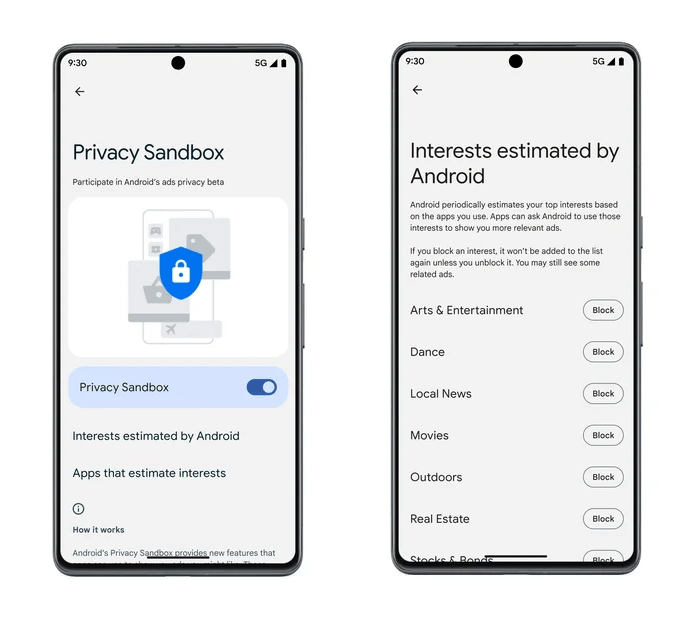
Google lives and thrives by showing targeted advertising to users all over the web and mobile.
To do this, it deploys number of trackers, which follow people wherever they are on the internet and mobile. Then, all of a sudden, Apple blew up the advertising market when it started providing App Tracking Transparency (ATT).
Apple disrupted the ecosystem, because the feature allows users to know and limit the movement of trackers inside apps, by limiting what apps can do.
Obviously, Google as one of the largest there is, isn't happy.
Knowing that it can no longer track users the way it used to, Google's solution is to use what it calls the 'Privacy Sandbox'.
So instead of deploying ordinary trackers, according to Google in a blog post, Privacy Sandbox is essentially a "more private advertising solutions."
Privacy Sandbox, which was originally introduced back in 2022, is a multi-year initiative to introduce more private advertising solutions to end-users and is made possible thanks to both the Topics API and FLEDGE.
The approach that makes it different that traditional tracker is that, Privacy Sandbox tracks users by interest groups rather than individually. This, according to Google, is a privacy improvement.
On users' side, the tracking system is able to build an advertising profile on them, but users are given an interface where they can block "interests" they don't want to see ads for.
There's even an off switch and a list of apps that uses the tracking system, all for users' convenience and transparency.
"For example, you could see that Android has estimated that you’re interested in topics like Movies or Outdoors, and you can block any topics if they don’t fit your interests. And if you change your mind about participating in the Beta, you can turn it off or back on in Settings," said Google.
So here, another user tracking system on Android is no big change in Google's grand scheme.
This is because on Android, the Privacy Sandbox tracking is just an addition to all the usual individual tracking methods Google has already deployed.
What's more Google is not pitching it as an alternative to anything.
Back in 2022, Google said that "we plan to support existing ads platform features for at least two years, and we intend to provide substantial notice ahead of any future changes," suggesting that it has no plans to reduce tracking on Android for the time being.

"The Privacy Sandbox for Android Beta will roll out gradually, starting with a small percentage of Android 13 devices, and will expand over time. If your device is selected for the Beta, you’ll receive an Android notification letting you know," said Google in another blog post.
According to Anthony Chavez, VP of Privacy Sandbox at Google:
"Apps that choose to participate in the Beta can use these APIs to show you relevant ads and measure their effectiveness."
"Evolving digital advertising to enhance user privacy, by moving away from reliance on cross-app tracking, is vital for the future of a thriving mobile ecosystem. We’ll continue to work closely with developers, marketers, and regulators on this journey."

The bigger change however, is adding the Privacy Sandbox to Chrome, since this is the first time an ad system has been built directly into Google's browser.
By doing this, Google, which controls most of the web browser market, has the capacity to circumvent ad blockers.
Privacy Sandbox on Chrome has also led to some arguments, since Chrome is only block third-party tracking cookies only when the system is up and ready for a global roll out.
In conclusion, Google is a tech company that is supported by ads.
It's only because of that, that the company had to come up with a solution, as an answer to privacy approaches by rivals, like Apple's ATT.
In all, Privacy Sandbox is taking a slightly different approach to traditional tracker, in which Google is tweaking it to appear less creepy for individual users while maintaining an interest-based, behavioral targeting capability on web users’ eyeballs.
Read: Google Kills 'FLoC' And Shifts Its Cookie-Less Tracker By Developing 'Topics'
